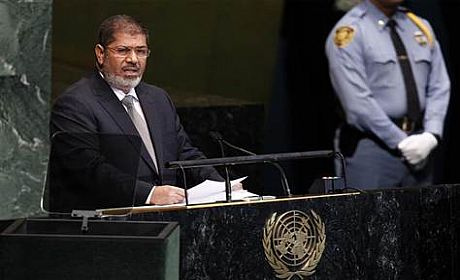Cairo Pursues Positive Nuclear Balance in Region

Egypt left the recent NPT meeting in protest. Their protest was that, based on the 1995 agreement, the Middle East was supposed to become a nuclear-free region, but Israel has not been committed to this agreement. How significant, in your opinion, is this measure?
It seems that this measure is only a political stance from a government which intends to show a new approach in the international scene. The present Egyptian government attempts to distance itself from the previous positions of Hosni Mubarak and show a different face of Egypt after the revolution. Such measures are uncostly gestures which are made for the political propagation of the government of Egypt which wants to enter the scene with a new and different face. But from the legal aspect, it bears no effect on the NPT’s direction or its context. In the NPT review session, which takes place every five years, the governments propose their ideas and opinions to perhaps impact the changes or open a path towards international rights in the long run. Repetition of these movements and insistences is not bad and it seems that it indicates the determination of the governments with regard to a nuclear-free zone in the Middle East. The fact that such a measure has been reflected in the media and attracted the public opinion is considered as a positive step.
You mentioned that these review sessions are held every five years. What are the issues that are discussed in these sessions and are new proposals and plans presented?
In the previous session which was held five years ago, some ideas were proposed, but no major change has been made in the context. Articles 4 and 6 of the NPT are very significant and are somehow related to the balance of power and the rights and obligations of the countries which do not have nuclear weapons and oblige them not to ever take a step on this path. On the other hand, the countries which have these weapons and use these techniques must help the other countries in achieving peaceful nuclear technology, and also must commit themselves that if some countries are attacked with nuclear weapons, they must defend them. No major changes are made on these issues, but changes may be made in the forms. Thus, new ideas are proposed and even mentioned on the agenda and registered in the final document. But this issue is one of the most difficult international treaties which cannot easily be altered. The five permanent members of the UN Security Council share common views about creating limitations for other countries in gaining nuclear knowledge. The NPT is a treaty a part of which is related to global political and security issues. Making changes in the NPT’s structure is as difficult as changing the structure of the UN and the Security Council. The reason is that it deals with international security issues and the five permanent members of the UN Security Council do not intend to make any changes.
Can it be said that Egypt’s intention in protesting was that if Iran is prevented from achieving nuclear advances, Israel must also be prevented?
When a government makes an official statement, there is no need to guess its intentions. What is certain is that the Egyptians protested against the inaction of the big powers with regard to Israel’s nuclear weapons, and this statement must be assessed in this regard.
What impacts, in your opinion, will this protest have on the NPT in dealing with Iran’s nuclear issue?
Perhaps the Egyptians pursue a positive balance. This means that in a negative balance the NPT would not care about the activities of any country, but in a positive balance, they put more emphasis on the issue that Egypt also has the right to move in this direction.
Is it possible that the other member countries would also follow suit?
Yes, it is possible that the governments of the region would also show a strong reaction in order to impact the big powers to change Israel’s major policies through public opinion. Any country, based on its foreign policies, can show that it cannot remain silent in this regard and this issue is among the basic demands of the countries so that sustainable peace would be established in the region and the Zionist regime must be atomically disarmed and the region must become free of weapons of mass destruction. It is possible that within these frameworks, the Egyptians might look at Iran’s nuclear issue.

